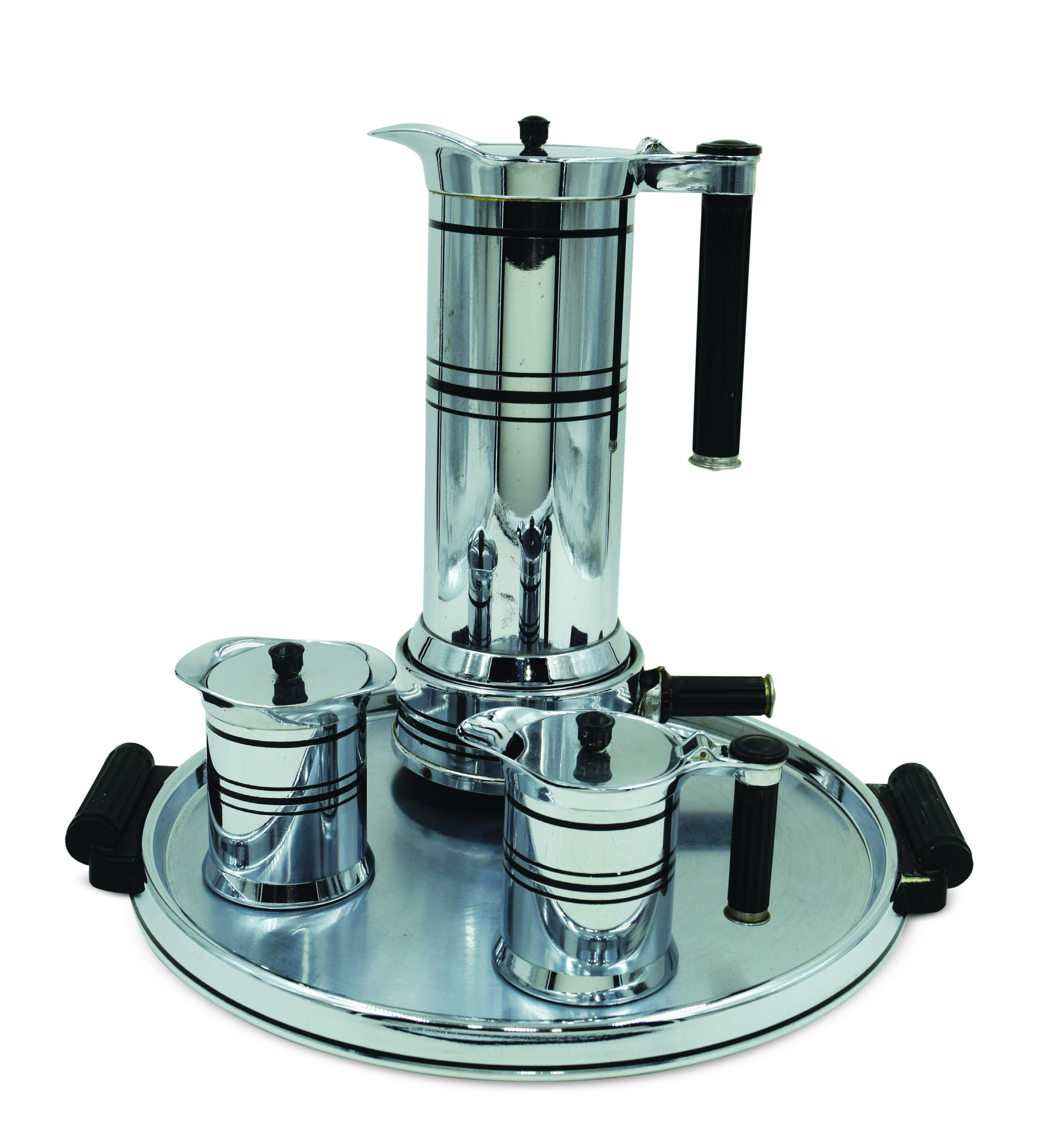Item Composition
Other
Item Medium
Other; Chrome-plated metal
Item Origin
Chicago, Illinois
Item Duration at Mansion
Temporary
Summary
Chrome-plated metal, 13½ × 14½ inches overall. Michael William McArdle (1874, Baileys Harbor, Wisconsin–1935, Chicago, Illinois), designer. Private Collection
Item Composition
Other
Item Medium
Other; Chrome-plated metal
Item Origin
Chicago, Illinois
Item Duration at Mansion
Temporary
The sleek chrome-plated Maxwelton Braes Sunbeam Coffeemaster service set—with its black ribbed handles and wrapping of thin black lines—is a classic of 1930s Depression-era streamlined design. Promoted by its maker as a "smart modern" tableside cooking appliance, the service set included a seven-cup cylindrical server, a vacuum brew-top with filter, 700-watt brew-and-serve heating element, along with creamer, sugar bowl, and circular tray.
Chicago Flexible Shaft Company began in 1893 as a manufacturer of flexible driveshafts, mechanical sheep shears, and other time-saving barnyard machines. In 1910, the company introduced its first home appliance, an electric iron (Ironmaster) under the brand name Sunbeam. The Sunbeam Mixmaster appeared in 1930, along with a toaster (Toastmaster) and a coffeemaker (Coffeemaster). By 1946, the appliances were so successful that the firm's name was changed to Sunbeam.
The coffee server's cylindrical design was patented as "a pitcher" in 1934 by Michael W. McArdle (1874–1935), president of the Chicago Flexible Shaft Company. With the company since 1905, the Wisconsin-born lawyer worked in the company's sales and advertising departments before serving as general manager. He was named president in 1927.
McArdle helped design many of the Sunbeam products, as well as the tools and processes used to manufacture them. It is said that he often brought the prototypes of Sunbeam products back to his hometown of Baileys Harbor, Wisconsin, to be tested by his sister-in-law, whom he credited with many subsequent improvements.
An avid golfer, McArdle began building a golf course and clubhouse on land that was formerly the McArdle family farm in Baileys Harbor in 1929. He chose the resort's name from the line in the song, "The Ballad of Annie Laurie"—"Maxwelton braes are bonnie." (Annie's father was the first baronet of Maxwelton in Scotland; brae means hillside.) It also alluded to his family's Scots-Irish heritage and the Scottish origins of the modern game of golf.
Suffering from cancer, McArdle died in May 1935, shortly before the modernistic set was advertised for sale. It is not known if the set was intended for use in the lodge and cottages at Maxwelton Braes or named in memory of its designer.
Item Composition
Other
Item Medium
Other; Chrome-plated metal
Item Origin
Chicago, Illinois
Item Duration at Mansion
Temporary


